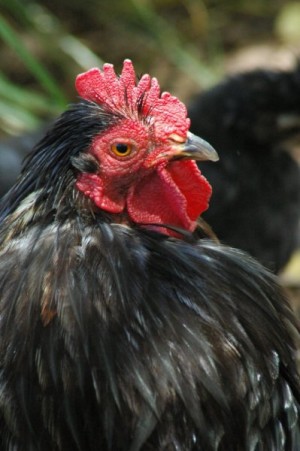
While not going so far as to say that travellers should avoid travelling to China, the US Center for Disease Control and Prevention (CDC) is offering up some decent advice to anyone who is travelling or living in China.
Most of the below is common knowledge, but it’s worth a read all the same.
There is currently no vaccine to prevent H7N9. At this time, we do not know the source of this virus. CDC is repeating its standard advice to travelers and Americans living in China to follow good hand hygiene and food safety practices and to avoid contact with animals.
- Do not touch birds, pigs, or other animals.
- Do not touch animals whether they are alive or dead.
- Avoid live bird or poultry markets.
- Avoid other markets or farms with animals (wet markets).
- Eat food that is fully cooked.
- Eat meat and poultry that is fully cooked (not pink) and served hot.
- Eat hard-cooked eggs (not runny).
- Don’t eat or drink dishes that include blood from any animal.
- Don’t eat food from street vendors.
- Practice hygiene and cleanliness:
- Wash your hands often.
- If soap and water aren’t available, clean your hands with hand sanitizer containing at least 60% alcohol.
- Don’t touch your eyes, nose, or mouth. If you need to touch your face, make sure your hands are clean.
- Cover your mouth and nose with a tissue or your sleeve (not your hands) when coughing or sneezing.
- Try to avoid close contact, such as kissing, hugging or sharing eating utensils or cups, with people who are sick.
- See a doctor if you become sick during or after travel to China.
- See a doctor right away if you become sick with fever, coughing, or shortness of breath.
- If you get sick while you are still in China, visit the US Department of State website to find a list of local doctors and hospitals. Many foreign hospitals and clinics are accredited by the Joint Commission International. A list of accredited facilities is available at their website (www.jointcommissioninternational.org).
- Delay your travel home until after you have recovered or your doctor says it is ok to travel.
- If you get sick with fever, coughing, or shortness of breath after you return to the United States, be sure to tell your doctor about your recent travel to China.
H7N9 Avian Flu Map
Additionally, to go along with their ongoing H7N9 coverage, the South China Morning Post has created a Google map displaying all known cases of H7N9
Human cases of H7N9 bird flu reported in China.
As of 8 pm, April 15, there are a total of 63 confirmed cases, including 14 deaths.Click on each balloon for more information on individual patients infected: blue, patients infected with the H7N9 virus under treatment; red, those infected with H7N9 who have died; yellow, those who have fully recovered; and pink, those infected other types of the Influenza A virus, including H1N1.
If you have questions about this latest round of bird flu, be sure to check out the World Health Organization’s H7N9 FAQ.
Photo by Peter Harrison







